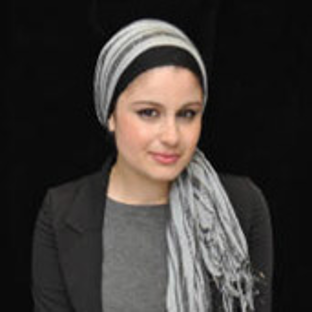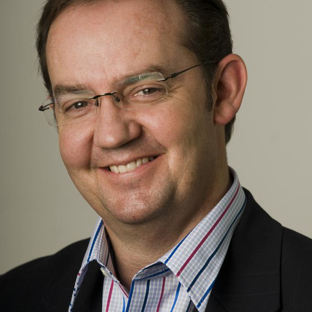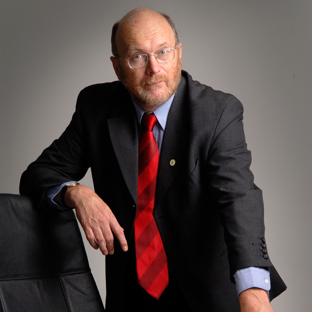The Wheeler Centre and St James Ethics Centre combine once again in 2012 to bring you another series of Intelligence Squared debates.
Established in 2002, IQ2 has spread from across the globe, bringing the traditional form of Cambridge and Oxford Unions-style debating – with two sides proposing and opposing a sharply formed motion – to Melbourne Town Hall.
From child soldiers in Sudan to gang violence in Papua New Guinea; tsunamis in the Pacific to earthquakes in New Zealand, we’re confronted with communities in need every day.
Who should we help? How can we be sure our aid dollars reach their destination? Some believe that aid traps communities in a cycle of dependence, holding them back from developing their own systems and managing their own issues. So on balance, do those dollars hurt more than they help?
And with endemic poverty in Australia’s indigenous communities and natural disaster breaking Queensland’s budget – should we ‘take care of our own’ first?
Arguing for the proposition will be Greg Sheridan (Foreign Editor, The Australian), James Goodman (Chair, AidWatch; Associate Professor in Social and Political Change, UTS) and Tim Wilson (Director, International Property and Free Trade Unit, IPA). Against it will be Martin Thomas (Head of Public Affairs and External Relations, World Vision Australia), Samah Hadid (National Director, Global Poverty Project) and Andrew Hewett (Executive Director, Oxfam; Co-Chair, Make Poverty History).
Attending this event? Use #iq2oz to tag your tweets.
Featuring
Greg Sheridan
Greg Sheridan is the Australian’s foreign editor, and one of the most influential foreign affairs analysts in Australian journalism. After 35 years in the field, he is a veteran of international affairs who has interviewed leaders all over the Asia Pacific and America.
He began journalism in the late 1970s at the Bulletin magazine. He has had a life-long love affair with Asia and knows its leaders and societies intimately, having interviewed presidents and prime ministers in Japan, South Korea, Indonesia, Malaysia, Singapore, The Philippines, Thailand, New Zealand and numerous other countries.
His work has appeared in newspapers around the world, including the Sunday Times of London, the Wall Street Journal, the Asian Wall Street Journal, the Jakarta Post and the South China Morning Post. He is a frequent foreign affairs commentator on radio and television and is a sought-after speaker at conferences around the region.
James Goodman
James Goodman has been on the management committee of the aid-monitoring group AidWatch since 1999. He has campaigned and researched on global justice issues since the mid 1990s and is co-author of a new book on the policy ideas of the global justice movement.
James played a central role in the AidWatch High Court case in 2010 that established the constitutional right for charities to be political, and to criticise government policy. He is an associate professor in the Social and Political Change Group at the University of Technology, Sydney.
He is co-author of Justice Globalism: Ideology, Crises, Policy (forthcoming with Sage), and co-editor of Crisis, Movement, Management: Globalising Dynamics (forthcoming with Routledge).
James has edited several books on the politics of globalisation, including Nationalism and Global Solidarities: Alternative Projections to Neoliberal Globalisation (Routledge, 2007); Nature’s Revenge: Reclaiming Sustainability in an Age of Corporate Globalism (Broadview, 2006); Protest and Globalisation: Prospects for Transnational Solidarity (Pluto, 2002); Moving Mountains: Communities confront Mining and Globalisation (Zed, 2002); and Stopping a Juggernaut: Public Interests versus the Multilateral Agreement on Investment (Pluto 2001).

Samah Hadid
Samah Hadid is the National Director of The Global Poverty Project. She has campaigned widely on social justice and women’s rights issues.
Samah was selected as the 2010 Australian Youth Representative to the United Nations, and completed a fellowship with the United Nations Office of the High Commissioner for Human Rights. Her advisory roles have included Youth Representative on the Australian National Commission for UNESCO, member of Amnesty International’s Diversity Steering Committee and a member of the UN Expert Meeting Group on Youth. She has been listed as one of “50 women we must admire” by the Herald Sun, and voted as one of the top 100 Leaders of Tomorrow by the St Gallen Institute.

Tim Wilson
Tim Wilson is the Member for Goldstein. He was first elected in 2016 and achieved the strongest result in the Goldstein’s history for the Liberal Party. As a proud liberal he is committed to economic and social freedom, underpinned by the preservation of our culture and institutions.
He formerly served as Australia’s Human Rights Commissioner. In that role he worked with the government to reform laws to stop and prevent terrorism, improving economic opportunities for indigenous Australians as well as standing up for laws to protect free speech and stop marginalised communities from public harassment.
Prior to serving as Commissioner he ran his own business, was a regular contributor on television and radio, was a policy director for a public policy think tank and worked in international development across South East Asia.
Amongst many awards, he was recognised as one of the ten emerging leaders of Australian society by The Australian newspaper in 2009.
He has a Bachelor of Arts (Policy Studies) at Monash University as well as a Masters of Diplomacy and Trade (International Trade) from the Monash Graduate School of Business.
Tim and his partner Ryan are passionate supporters and members of the mighty Melbourne Demons, and as a hobby collect gins from across the world.

Martin Thomas
Martin Thomas is the Head of Public Affairs and External Relations at World Vision Australia. He has worked in the aid and development sector for more than a decade both for World Vision and UNICEF, in Australia and overseas.
The senior roles Martin has held during this time include Director of Advocacy and Communications (UNICEF Australia), Head of Advocacy and Chief of Staff to the CEO (World Vision Australia), Manager, Public Policy Communications (World Vision International, London).
Prior to entering the NGO sector, Martin worked as a senior journalist and editor for News Ltd publications including The Australian and The Courier-Mail where he held a number of roles including Business Editor, Chief-of-Staff and Senior Political Writer (NSW).
Martin has a degree in Theology and is completing his Master of International Relations.

Andrew Hewett
Andrew Hewett is Executive Director of Oxfam Australia.
Andrew’s previous positions with Oxfam include leadership of the agency’s advocacy program and the direction of Oxfam International’s response to the crisis in East Timor from 1999 - 2001.
Andrew has extensive international advocacy experience, was a member of the World Bank-NGO Committee for four years and has participated in and observed numerous international conferences, including those of the World Trade Organisation and the World Bank.
Andrew is the vice-president of the Australian Council for International Development (ACFID), the peak council of non-government development agencies. He is also Co-Chair of the Make Poverty History Campaign. He is a member of the BHP Billiton Forum for Corporate Responsibility.
He has visited Oxfam Australia programs in East Asia, South Asia, the Pacific, Central America, Southern Africa and the Horn of Africa as well as its programs working with Indigenous Australians.
